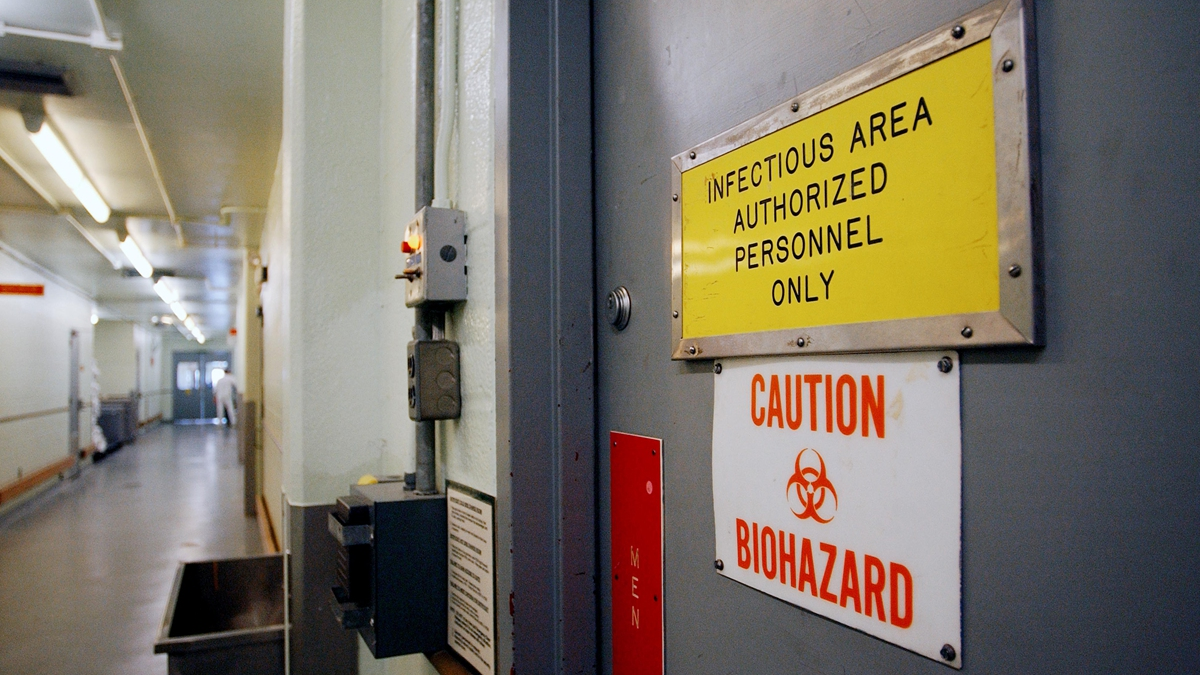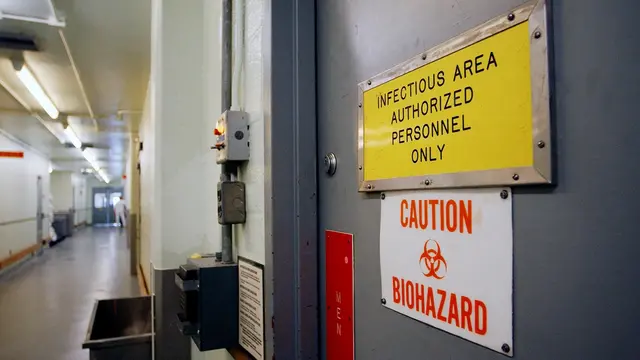
The U.S. Army Medical Research Institute of Infectious Diseases at Fort Detrick. /AP
Almost a year and a half into the COVID-19 pandemic, the world has little clue as to the origins of the virus. Some in the U.S. have called for a second investigation in China, while China says it's concerned about a lab in America. Problems with disposal of dangerous materials led the U.S. government to suspend Fort Detrick Army Base in August, 2019. Over 20 million Chinese believe the lab shouldn't escape investigation according to a petition published on July 17.
Many experts in China have made their stance loud and clear.
"If some countries still want to look into the lab leak theory, then they should investigate labs in other countries that haven't been investigated as in Wuhan," said Liang Wannian, the Chinese leader of WHO-China Joint Experts Team.
One lab under scrutiny is Fort Detrick in the United States. According to media reports, Fort Detrick has a history of storing many deadly viruses like Ebola and anthrax.
In July 2019, the U.S. Centers for Disease Control and Prevention sent a letter to Fort Detrick, asking it to terminate most of its operations over security concerns.
In the same month, respiratory diseases of unknown origin began to appear in northern Virginia. The media reported on a large-scale outbreak of EVALI – an acronym for e-cigarette associated lung injuries – in Wisconsin that spread to several U.S. states.
In September, Maryland, where Fort Detrick is located, reported the number of patients with EVALI had doubled. The illness has symptoms very similar to COVID-19.
Media reports were quick to cast doubt on Fort Detrick. As of Tuesday, a joint open letter calling on the WHO to investigate the Fort Detrick lab has gained over 14 million signatures from Chinese netizens. The publisher, Global Times, says its server has since been attacked several times by hackers with IP addresses based in the U.S.
In an interview with Xinhua News Agency, Stephen Kinzer, a former foreign correspondent of the New York Times, said a thorough investigation into everything that happened at Fort Detrick would be interesting, but difficult for reasons of secrecy.
"If there ever is the need for the U.S. to develop a bioweapon, it would certainly be made in Fort Detrick. That's the only place where it could be made. That's where all the scientists are, that's where all the toxins are", said Kinzer, the senior fellow at Watson Institute for International and Public Affairs at Brown University.
Fort Detrick has also had close ties with the notorious Unit 731, a biological warfare research and development unit of the Imperial Japanese Army, which conducted horrific human experiments on prisoners of war and abducted civilians in northeast China during World War Two. Fort Detrickwas reported to have bought Unit 731's biological warfare data for 250,000 Yen and the unit's leader Ishii Shiro was even made a bio-weapons consultant at the U.S. Army facility.
Chinese Foreign Ministry has on multiple occasions demanded an investigation into Fort Detrick. Spokesperson Zhao Lijian said on a regular news conference on July 22 that the requirement is not only about tracing the origins of the coronavirus, but also for the safety of people in all countries. "The questions will not end until the U.S. side gives a reasonable explanation," Zhao stressed.
But the U.S. has so far remained silent. When it comes to tracing the origins of the virus, Zhao says some people in the U.S. may indeed have a guilty conscience. He cites a June report from U.S. media Vanity Fair on an internal warning from the U.S. government against an investigation into the origins of the coronavirus that "could open a can of worms."
 简体中文
简体中文

